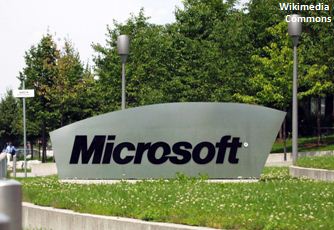
In the middle of the current bitter debate over gay marriage, Microsoft launched an advertisement prominently and positively featuring a gay marriage and Nordstrom brought in rapper Macklemore to lead a gay wedding dance party. Might this lead some social liberals to buy more from these companies?
How about if a fried chicken chain took the opposite stance on gay marriage? Might social conservatives line up for more chicken? It sounds plausible.
Today, more than ever, companies are looking for powerful ways to connect with consumers. There may be no stronger way to connect with consumers than through controversial beliefs, morals, and politics. Such a connection can drive loyalty and free publicity. After Microsoft and Nordstrom released pro-gay marriage ads, many Facebook users took to praising the companies and posting the ads, thereby providing the companies with free advertising.
It is a simple fact that when a person's beliefs, morals, and politics are threatened, the way in which they react toward anything related to those beliefs, morals, and politics dramatically changes. They become desperate to defend their beliefs, to bond with their groups, and to lift up any person, argument, or company who supports their ideas. The world becomes defined as "us" versus "them," and those who fight for "us" become heroes.
In a congested modern marketplace, a company's goal is not to please everyone. Instead the goal is to gain a loyal following. Companies can disregard or even strategically offend portions of the general public (e.g. American Apparel's sexual and gender-bending advertisements) and still succeed in the market place. As the country becomes in many ways more politically polarized, companies may become more politically polarized as well.
Interestingly, companies can often comfortably be more polarized than many national politicians, because companies do not need to win the majority, just a small profitable piece of it. This is especially true for regional companies who need only to compete in a small specific market.
However, even the largest national brands (Walmart, Microsoft) that need to please almost everyone can profit from polarization if they just take a page from the playbook of America's national politicians. America's most successful politicians carefully tailor their message on regional levels. For instance, the Mitt Romney (former Republican governor of Massachusetts) portrayed to Massachusetts residents in 2002 greatly differed from the Mitt Romney portrayed nationally in 2012.
Furthermore, national brands can take advantage of "virtual regions" on the Internet by presenting targeted ads to targeted consumers. For instance, Microsoft can place their gay-friendly ads in front of gay-friendly shows like How I Met Your Mother. Things can get even more micro-level, as demographic information on sites such as Facebook allows companies to present different ads based on whether Facebook users "like" The Human Rights Campaign or Protect Marriage.
Are liberal tablets and conservative chickens the future of American advertising? Time will tell. However, the signs indicate that under many circumstances red versus blue advertising can be quite effective. For those who wish that politics would stop seeping into every piece of American media, you may want to be prepared for your breakfast cereal to come with a side of politics.
